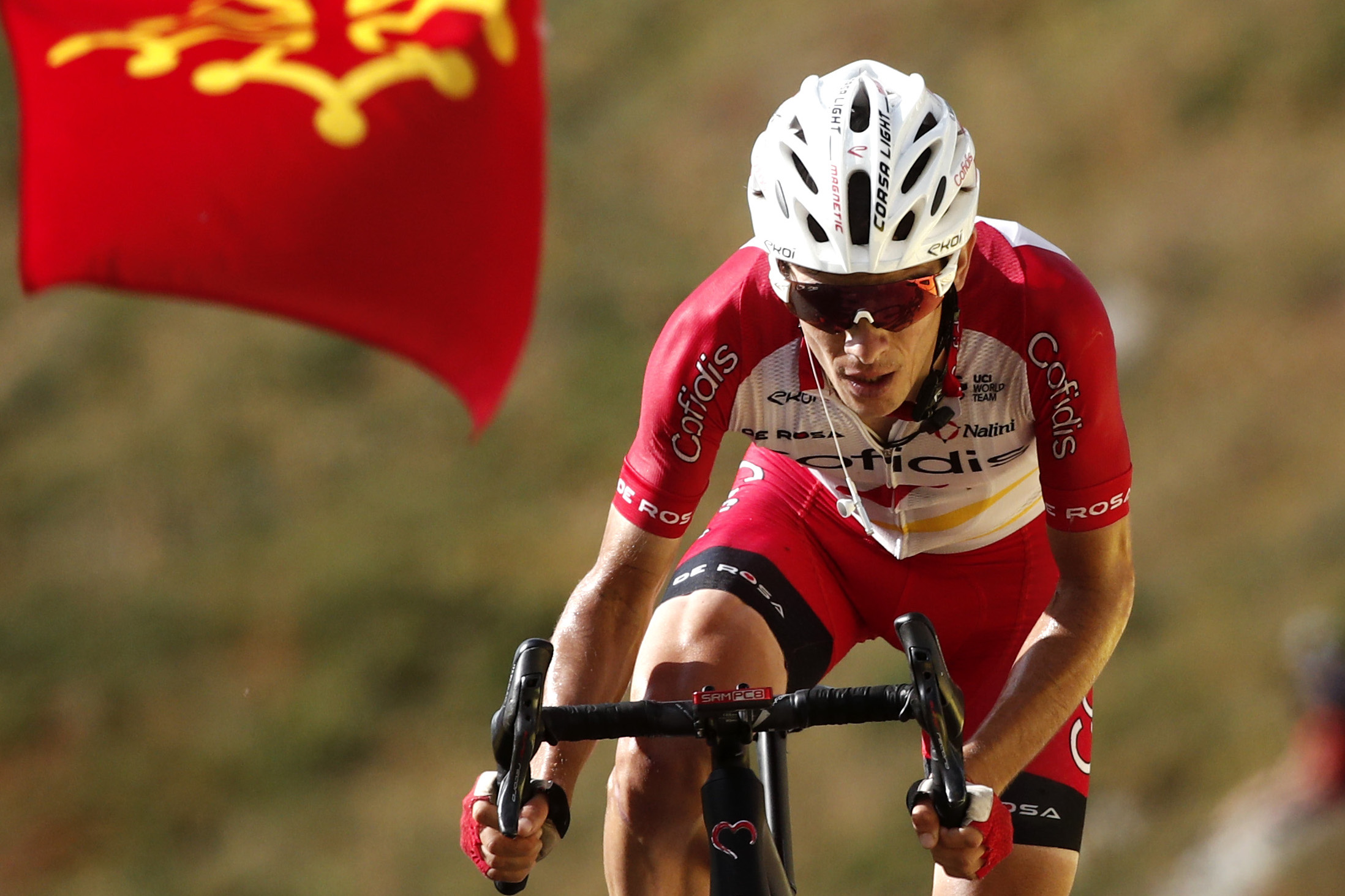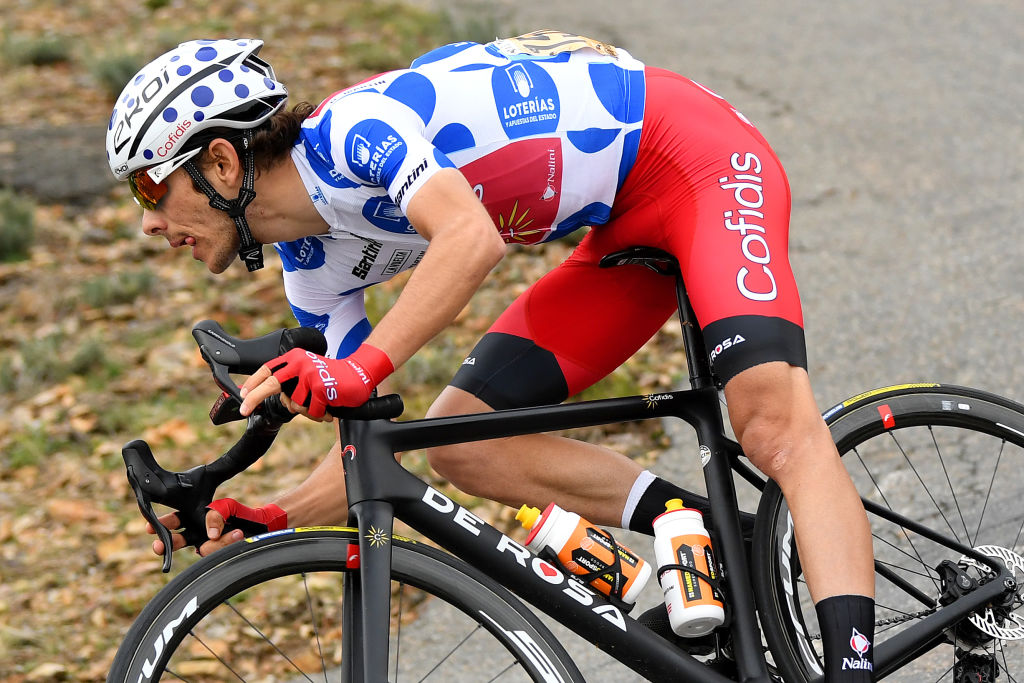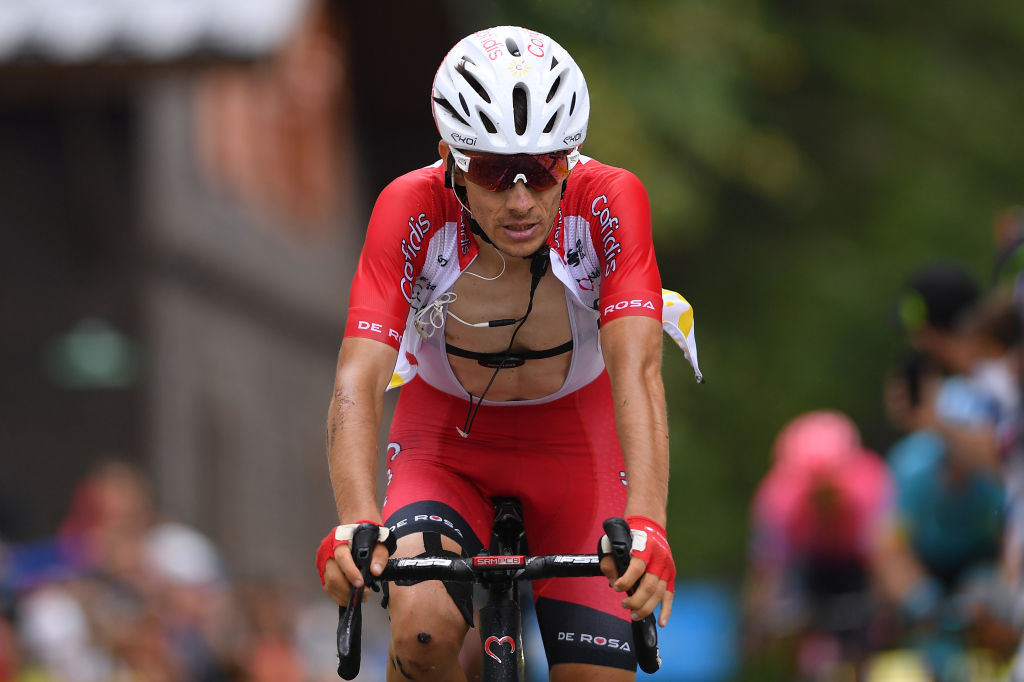Leading role: Guillaume Martin relishes Tour de France responsibility at Cofidis
'You have to show you're a leader with your example and your results'

Numbers never tell the whole story. Guillaume Martin finished 12th overall at the 2019 Tour de France and he reached Paris in 11th at the rescheduled 2020 edition, but the single place he gained in the general classification was scarcely reflective of his enhanced standing.
On joining Cofidis from Wanty-Gobert at the beginning of last season, Martin had expressed a certain disappointment with the previous summer’s Tour. He had been consistent, true, but he felt underwhelmed by a performance that he deemed to have lacked “any little seed of madness” across its three weeks.
“There was never a grand gesture. People weren’t interested in me anymore,” he said then.
Martin could have no such misgivings after the 2020 Tour, where he piqued interest in France and beyond with his effervescence in the opening phase of the race. He came close to stage victory at Orcières-Merlette, almost matched Primoz Roglic in the Pyrenees and spent much of the second week in third place overall, just seconds off yellow.
A crash on stage 13 and a mechanical problem at the base of the Grand Colombier two days later cost him the bones of six minutes and saw him fall outside the top 10, but Martin recovered to end his Tour on a defiant note, moving past Alejandro Valverde in the final time trial at La Planche des Belles Filles to claim 11th place overall.
If Martin, a playwright in his spare time, had felt but a bit player on the 2019, then he occupied a far more central role last September even if the final result didn't show it.
“I was pleased with the manner of it more than the final result,” Martin tells Cyclingnews now.
Get The Leadout Newsletter
The latest race content, interviews, features, reviews and expert buying guides, direct to your inbox!
“I was present across the whole three weeks, and I was in the top three overall for a long time. After that, there are imponderables, things that you can’t master, but that’s sport. I adapted as best as possible to those elements. I didn’t lay down arms when I had mechanical problems, for example.
“I was much more present this time, and you also have to say that it was a Tour with a much higher level than in previous years. All the best riders in the world were there, without exception, so that 11th place had more value, obviously, than an 11th or 12th place from the previous editions.”
Much attention during last Autumn’s rescheduled slate of racing focused on the startlingly high level of the peloton, with record times being set on various climbs and with many riders agog at the power output now required to compete at the front.
Here, again, the numbers tell only part of the tale. Indeed, in Martin’s case, they barely registered, at least in real time.
“I’d already taken the power-meter off my bike for the whole of last season to save weight, so I didn’t have the power data at all,” Martin says. “But afterwards, you’d hear that the record times were being beaten on every stage, so I was happy to be up there and in the game. That was satisfying.”
Nor was Martin overly beholden to numbers when cycling went into a four-month hiatus last March due to the coronavirus pandemic.
The 27-year-old resisted the temptation to match the indoor feats of endurance that some of his peers were posting during the lockdown, largely shunning the home trainer. Instead, he spent the strictest weeks of France’s confinement helping out on his parents’ farm holding in Sainte Honorine la Chardonne in Normandy, where working on his feet in the open air helped strike an equilibrium between doing too much and too little.
“There was a lot of sort of disproportionate rush to see who was doing the most on the home trainer or the longest training rides at home, but I certainly didn’t want to get involved in that game because I thought it was the best way to burn yourself out. But at the same time, you couldn’t spend your whole day on the couch, it was a question of finding the right balance, the right measure,” says Martin.
“We knew there was going to be a long break, so that allowed us to do things a little differently to normal. I only did a little bit of riding and then I got back on the road gradually. It was very unusual, but it gave me a chance to take a breather in the middle of my career.”

Becoming a leader
Martin, of course, had crammed a lot into his career already, both on and off the bike.
While riding the 2019 Tour, for instance, the polymath also had a play performed at the Festival d’Avignon, while a recently published philosophical book, Socrate à vélo (‘Socrates on a bike’), was earning warm reviews.
Moving to the WorldTour in 2020 with Cofidis marked a new phase in Martin’s development, but he politely rebuts the notion that the carrying the weight of team leadership at Cofidis is any greater than it had already been during his time at ProTeam level with Wanty-Groupe Gobert.
“You mustn’t forget that I was already the leader of my team at Wanty, so on the inside, I lived it in the same way. I already had teammates who were riding for me,” Martin says.
“Maybe it wasn’t at the same level, but for me, the sense of responsibility was the same, so it didn’t change an awful lot.
"You’d really have to ask the staff or my teammates, but I think I’m calm as a leader, I’m not someone who raises his voice easily. I know what I want all the same, so I don’t hesitate to speak when something important needs to be said. But I know above all that you have to show you're a leader with your example and your results."
Martin is not blind, of course, to the increased media attention that comes with leading a French team, but he does appear largely inured to its effects. As Thibaut Pinot’s Tour challenge unravelled after an early crash, the home nation turned its eyes towards him, but he paid little heed.
“When you’re in the race, you’re following other ambitions than that of simply being the first French rider,” he suggests.
A week after the Tour, Martin wasn’t riding to be first French rider at the World Championships in Imola either. Instead, he was working in the service of one, helping to tee up Julian Alaphilippe’s winning effort.
It was, remarkably, Martin’s first selection for the Worlds since he was a junior, but he made up for lost time by controlling the front group on the final lap. Although that sustained cameo was lauded afterwards, Martin confesses that the satisfaction of contributing to a world title wasn’t quite the same as winning a race for himself.
“It was different,” Martin says. “To be honest, I didn’t take the same pleasure from that as when I win myself, because I’m a leader, I’m a winner. But still, it’s another type of satisfaction, another type of pleasure.”
At the Vuelta a España that followed, Martin carved out another way of racing. Losses in the opening days saw him shift his attention to chasing the king of the mountains prize, though he still had the wherewithal to place second to Tim Wellens in Sabiñanigo on stage 5, and he was an aggressive presence every time the road climbed thereafter. He duly renewed Cofidis’ old tradition of claiming the polka dot jersey in Madrid, where he also placed 14th overall.
“My season was already a success so I could approach the Vuelta in a relaxed way, and there was even less pressure after the opening days,” he says.
“It was a different style of racing for me, and a different kind of kind of pleasure again.”

Stepping up in 2021
Martin is speaking over the phone from Sierra Nevada, where he is training at altitude with Simon Geschke, Victor Lafay, Fernando Barcelo and Pierre-Luc Périchon before starting his season – coronavirus restrictions permitting, of course – at the Tour des Alpes-Maritimes et du Var on February 19.
The Ardèche Classic and Drome Classic ahead of Paris-Nice, the Tour of the Basque Country and the Ardennes Classics are due to follow, but with so many races postponed and cancelled so far in 2021, the schedule is a precarious one.
“There’s a sword of Damocles with possible last-minute cancellations, but we’re preparing and trying to be ready for the start of the season,” Martin says.
“And regardless of that, the work we’re doing now will serve us well later on. In any case, last year I saw that I was capable of coming back into form quite quickly after the break, so if the start of this season is a bit interrupted, it doesn’t mean I won’t be able to perform well in the summer or at the Tour.”
At Cofidis’ team presentation in January, Martin stressed that he and his team had an overarching objective in 2021: “Raising our arms.” The squad picked up just four wins in total last year and while Martin’s fine string of results included third overall at the Critérium du Dauphiné, he was frustrated by his own failure to weigh in with a victory of his own.
Notching up the first WorldTour win of his career will again be a target in 2021 as he builds towards his second Tour in Cofidis colours.
His precise aims in July, however, are yet to be established. Vying for a spot in the top ten would appear an obvious goal but, on first glance at least, the parcours is rather less amenable to Martin’s talents than last year.
“It will depend on the form I’m in and on how the first week goes,” he says. “We’re still a long away, but on paper the course suits me a little bit less from a GC point of view, so for me it might be easier for me to race for stage wins or the polka dot jersey. We’ll see.”
Whatever the target, Martin won’t be there just to make up the numbers.

Barry Ryan was Head of Features at Cyclingnews. He has covered professional cycling since 2010, reporting from the Tour de France, Giro d’Italia and events from Argentina to Japan. His writing has appeared in The Independent, Procycling and Cycling Plus. He is the author of The Ascent: Sean Kelly, Stephen Roche and the Rise of Irish Cycling’s Golden Generation, published by Gill Books.